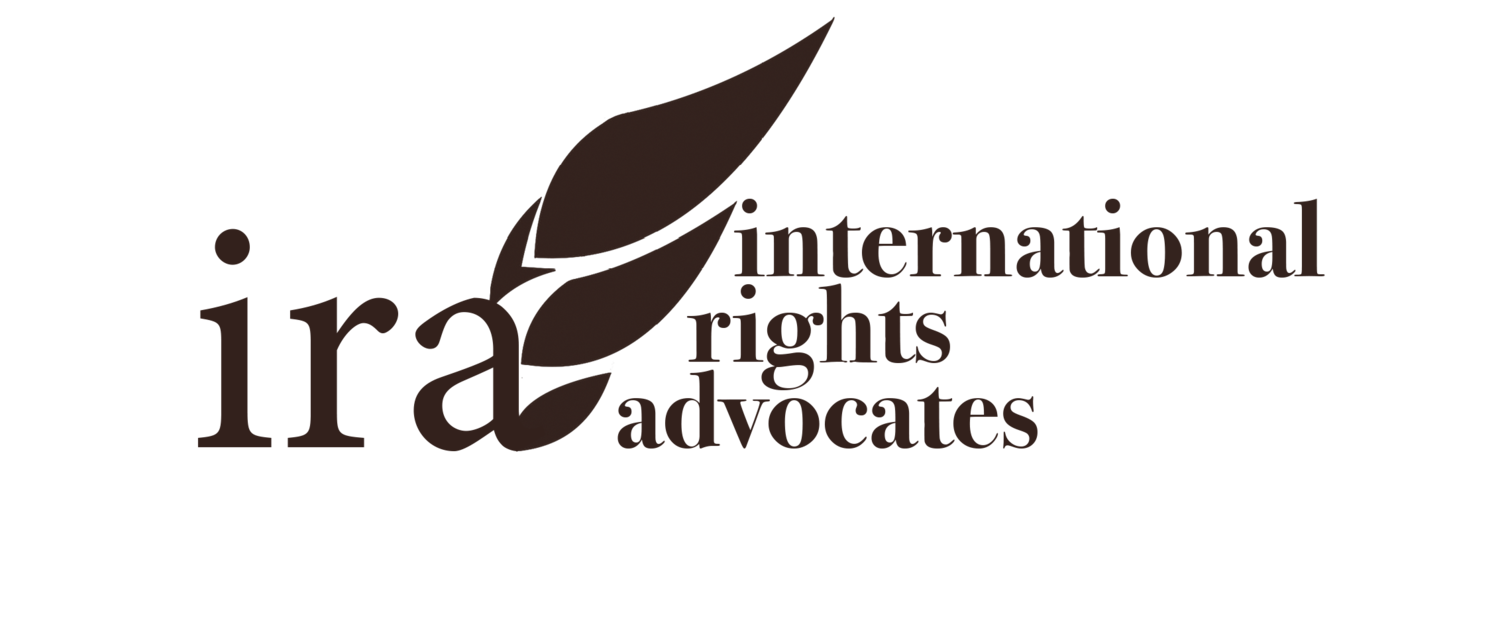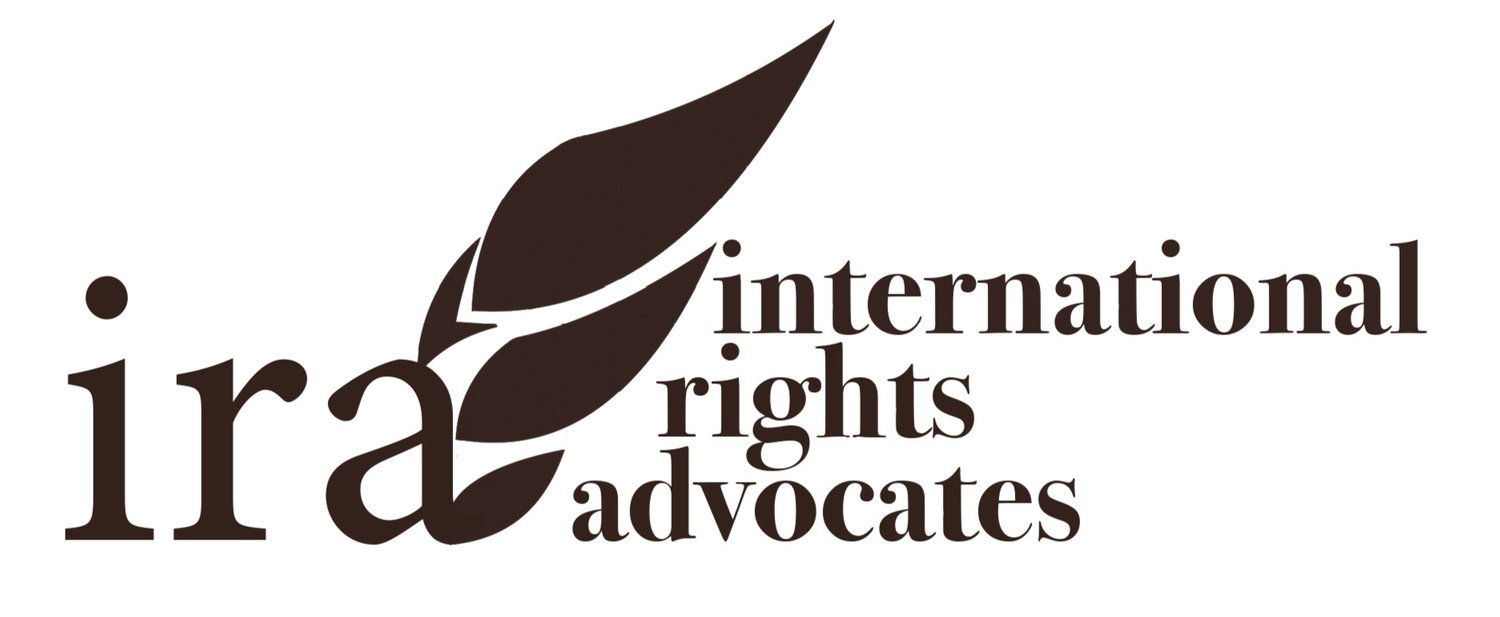Former child slaves and NGOs send notice of intent to sue Coopérative U Enseigne
Plaintiffs demand that supermarket giant stop selling chocolate made with illegal child labor or deforestation.
Background
An international coalition of associations (International Rights Advocates, Imperial Child Rights and Women Empowerment (ICRAWE), ROSCIDET) and eight former child slaves who were victims of human trafficking (Issouf Coubaly , Sidiki Bamba, Tenimba Djamoutene , Oudou Ouattara, Ousmane Coubaly , Sidiki Bamba, Tenimba Djamoutene , Oudou Ouattara, Ousmane Ouattara, Issouf Bagayoko, Arouna Ballo and Mohamed Traore) are calling on the French supermarket giant Coopérative U Enseigne Group to take the necessary measures to exclude chocolate from deforestation and forced child labor from its supply chain globally, especially in Côte d’Ivoire and Ghana. The group also reserves the right to seek compensation for the resulting damages.
Represented by French lawyer William Bourdon and relying on the French Corporate Duty of Vigilance law, Article L. 225-102-4.-I and II of the French Commercial Code, the associations and former child slaves have presented evidence regarding severe human rights abuses and extensive deforestation in supply chains of chocolate companies whose products are routinely found on Coopérative U Enseigne’s shelves. Plaintiffs allege that evidence of human rights and environmental abuses was so widespread that Coopérative U Enseigne should have exercised better due diligence to avoid retailing chocolate tainted by these serious crimes.
Coopérative U Enseigne’s chocolate suppliers, including Nestlé, Mondelēz, Mars, and their cocoa suppliers, Cargill, Barry Callebaut, and Olam have repeatedly been identified as being at particular risk of having crimes and abuses in their cocoa supply chains. These include child trafficking, child labor, slavery, forced labor, as well as other human rights violations, in addition to environmental crimes such as illegal deforestation.
French attorney William Bourdon also sent out notice and warning letters to Nestlé and supermarkets Carrefour, Auchan, Casino, Intermarché, Les Mousquetaires, Louis Delhaize Group, Schwarz Gruppe, Aldi, Metro, Lidl, Picard Surgelés, which are all bound by the ‘duty of vigilance’ law, informing them of this legal proceeding, and asking about their cocoa supply chains.
Child labor in Coopérative U Enseigne suppliers’ cocoa supply chains:
The plaintiffs’ claim includes their own evidence as well as corroborating research by numerous other sources. An estimated 1.5 million child workers are involved in cocoa production and harvesting in growing areas cocoa from Côte d'Ivoire and Ghana. Forced and child labor in the cocoa sector, described as a “crime against humanity” by Kailash Satyarthi, winner of the 2014 Nobel Peace Prize, results in serious violations of human rights, health and security.
• Children from neighboring Mali and Burkina Faso, like the eight Plaintiffs, have been and are being trafficked to Côte d’Ivoire to harvest cocoa. Human traffickers prey on the most vulnerable members of society. Children are separated from their parents, sometimes sold to traffickers, and held against their will.
• Such children – like the plaintiffs – are threatened and beaten if they try to escape. They are punished with physical violence, deprived of adequate food and subjected to inhumane and cruel treatment, such as being forced to drink urine and having their feet cut open.
• Even when not trafficked and forced to work on cocoa farms away from their families, many children as young as five are exposed to dangerous work on cocoa farms, including burning and clearing fields, felling trees to expand cocoa plantations, spraying pesticides, using sharp tools, and carrying heavy loads. Such work constitutes “Worst Forms of Child Labor” in violation of ILO Convention No. 182.
Illegal deforestation and environmental damage on Coopérative U Enseigne suppliers’ cocoa plantations:
• Over the past 60 years, Côte d'Ivoire and Ghana have lost about 94% and 80% of their forests, respectively, and it is estimated that about a third of this forest loss is due to cocoa encroachment on forests. Research published by Mighty Earth found that in the period between January 2019 and January 2022 alone, Côte d'Ivoire lost 19,421 hectares (194.21 km2) of forest in cocoa-growing regions, while Ghana lost 39,497 hectares (394.97 km2) in cocoa growing regions. This represents a combined area equivalent to the size of the cities of Madrid, Seoul or Chicago. Ivorian government data indicates that around 94% of Ivorian forests were lost between 1995 and 2015 alone. Deforestation, including some illegal deforestation, has been found in the supply chains of cocoa and chocolate companies whose products are retailed by Coopérative U Enseigne.
• Many of the threatened rainforests in Côte d'Ivoire, Ghana, Cameroon, Nigeria and other cocoa-producing countries are located in areas protected by law. They serve as critical habitat for endangered species such as chimpanzees and pygmy hippos, while also containing significant carbon reserves whose release could contribute to global climate change.
• The increasing trend in children's exposure to pesticides is of great concern. The number of children exposed to pesticides is thought to have increased almost fivefold between 2010 and 2020. Harms caused to children by exposure to agrochemicals are significant and can lead to lifelong adverse effects, including respiratory diseases, learning problems, and cancers. Additionally, prenatal exposure to pesticides can lead to a wide range of birth defects and miscarriages. Because of these risks, pregnant women and children should never handle pesticides.
“Mise en demeure” alleges that Coopérative U Enseigne is violating its duty of vigilance
Adopted on March 27, 2017, the law relating to the duty of vigilance requires companies employing more than 5,000 employees in France to publish an annual vigilance plan that identifies risks and plans to prevent serious human rights and environmental abuses, including when committed by their direct or indirect subsidiaries. While Coopérative U Enseigne does have a compliance plan, it is seriously lacking in terms of its cocoa supply chain due diligence.
The filers formally ask the Coopérative U Enseigne Group to respect its legal obligations by taking all necessary measures to exclude chocolate resulting from forced child labor and deforestation from its supply chain. If the company does not comply within a period of 3 months provided for by law, the filers intend to refer the matter to the competent court.
Case Details
Docket No. n/a Op. Below n/a Argument n/a Opinion n/a Vote: n/a Author: n/a Term: n/a
Holding
Judgment
Documents


